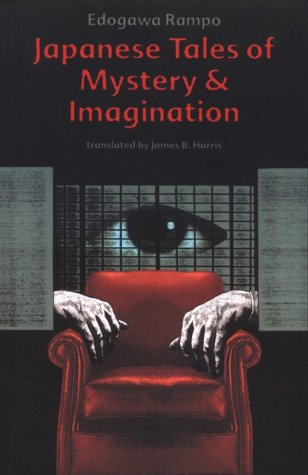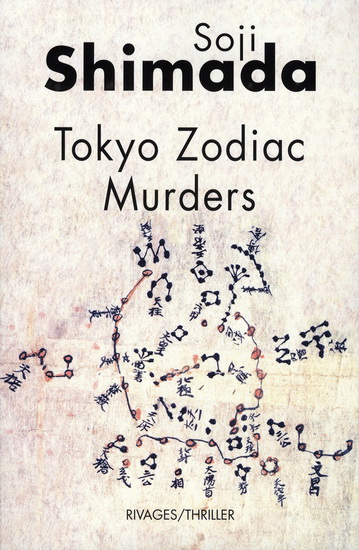Why should you care about the Japanese detective story? Well, Japan has a long and rich tradition in the genre, and even today, the detective novel holds a vital place in Japanese fiction. From light-hearted travel-mysteries to Golden Age–styled novels, from the ‘social detective’ with his cultural commentary to the grotesque mystery, the Japanese detective can be seen everywhere in books, comics, television dramas, cartoons, movies and who-knows-what-else. The yearly output of material every year is immense, and it would be foolish of a fan of the genre to ignore the gems that are released in Japan. Even though these are occasionally translated into English, all the translations combined don’t compare to what’s released every single month in Japan. These really are the treasure islands of detective fiction.
“Ellery Queen IS the American detective story,” Anthony Boucher once famously said. As I was thinking about how to write this introductory post on the Japanese detective story, I glanced over my bookshelves. What do I think it is? Is there an author, a single piece of work I could present to the readers with the words: “Read this, and you’ll know what the Japanese detective story is”? Was there some characteristic I could point to?
If I had posed this question to myself several years ago, I would’ve said that the Japanese detective novel is like a British Golden Age novel with a lot more gore. These novels are fair-play battles of wits between the writer and reader, and the clever reader will be presented with all the clues necessary to solve the crime. All this, plus chopped-up bodies and messy crime scenes! But the older and wiser me knows better. There is so much more to the Japanese detective novel.

The post-World War II period is said to be the period of the ‘Social School’, represented by Matsumoto Seicho. His novels do away with all the fantasy of his predecessors and are usually about normal citizens who get caught up in the crimes committed by the elite of the society. The realistic setting allowed Matsumoto to show the shadowy side of the so-called ‘Japanese post-war economic miracle.’ Perhaps I’d call this the Japanese detective story?

Perhaps, I should consider other mediums besides books? Japanese comics and animation have become quite popular worldwide over the last few years. One of the more well known series is Detective Conan, another Golden Age-styled series that has broken record after record, not only in Japan, but across Asia. Children watch it, adults watch it. Is this accessible and internationally-acclaimed series the Japanese detective ideal?
By this point, I decided I just wouldn’t be able to call any one particular author or one particular school of writing THE Japanese detective story. The genre has been around in Japan for about a century so far, making countless transformations up to this point. It will change again. Maybe the ever-changing crime novel IS the Japanese detective story.
Ho-Ling Wong blogs at Ho-Ling no Jikenbo

Japanese detective stories have many flavors—from classic ‘locked room’ puzzles to adrenaline-driven gorefests. I’d be interested to learn more about how the dynamicism and diversification of this genre reflect the rapid socio-economic and political changes of Post-War Japan.
Thanks for giving us a taste of the variety of types of Japanese mysteries. I think that in most fiction, the culture that the writer strives to impart is as much an attraction to the reader as the story itself, and it sounds like there is a lot I could enjoy in Japanese detective fiction.
Thnaks for Shaering it